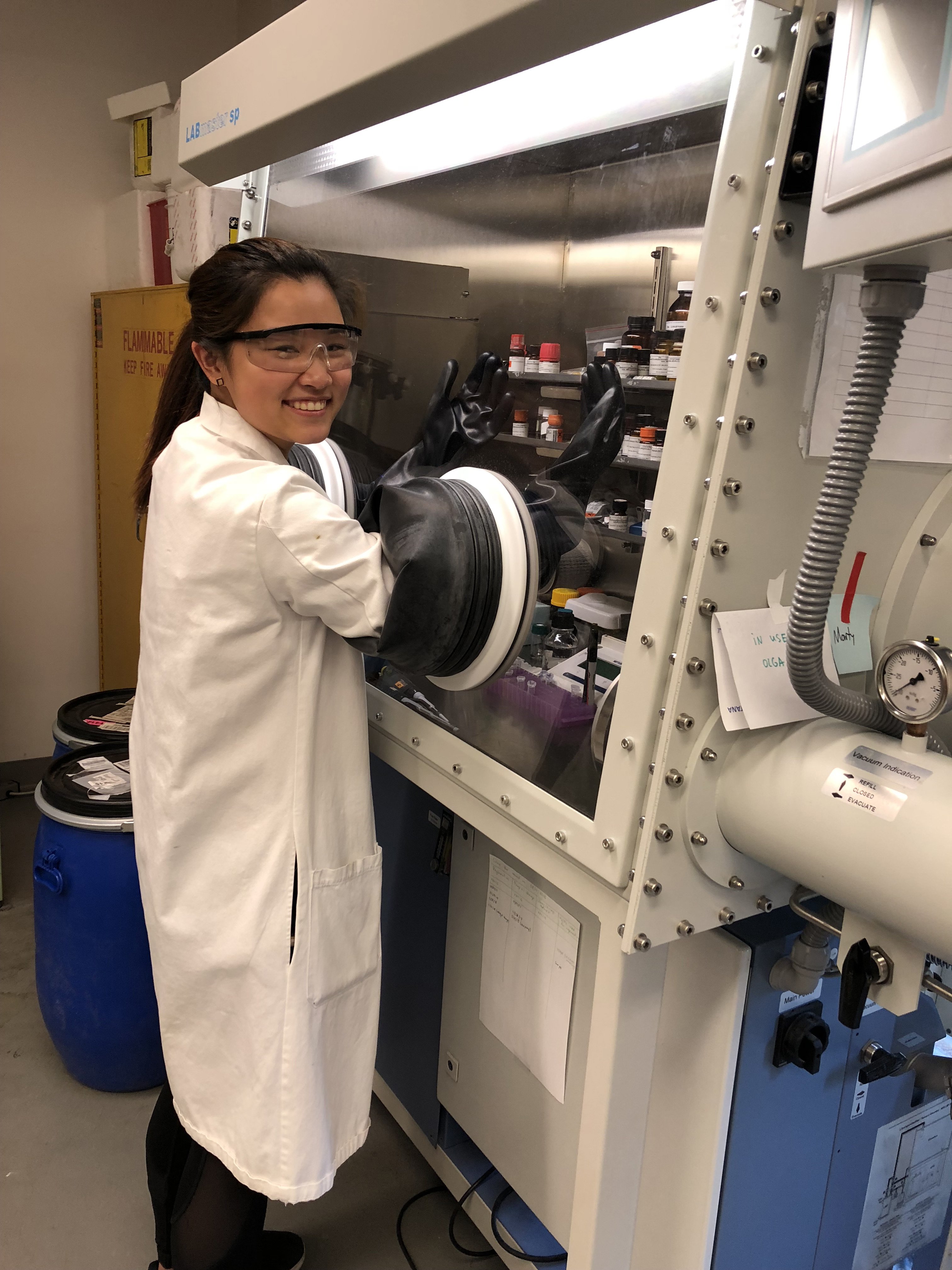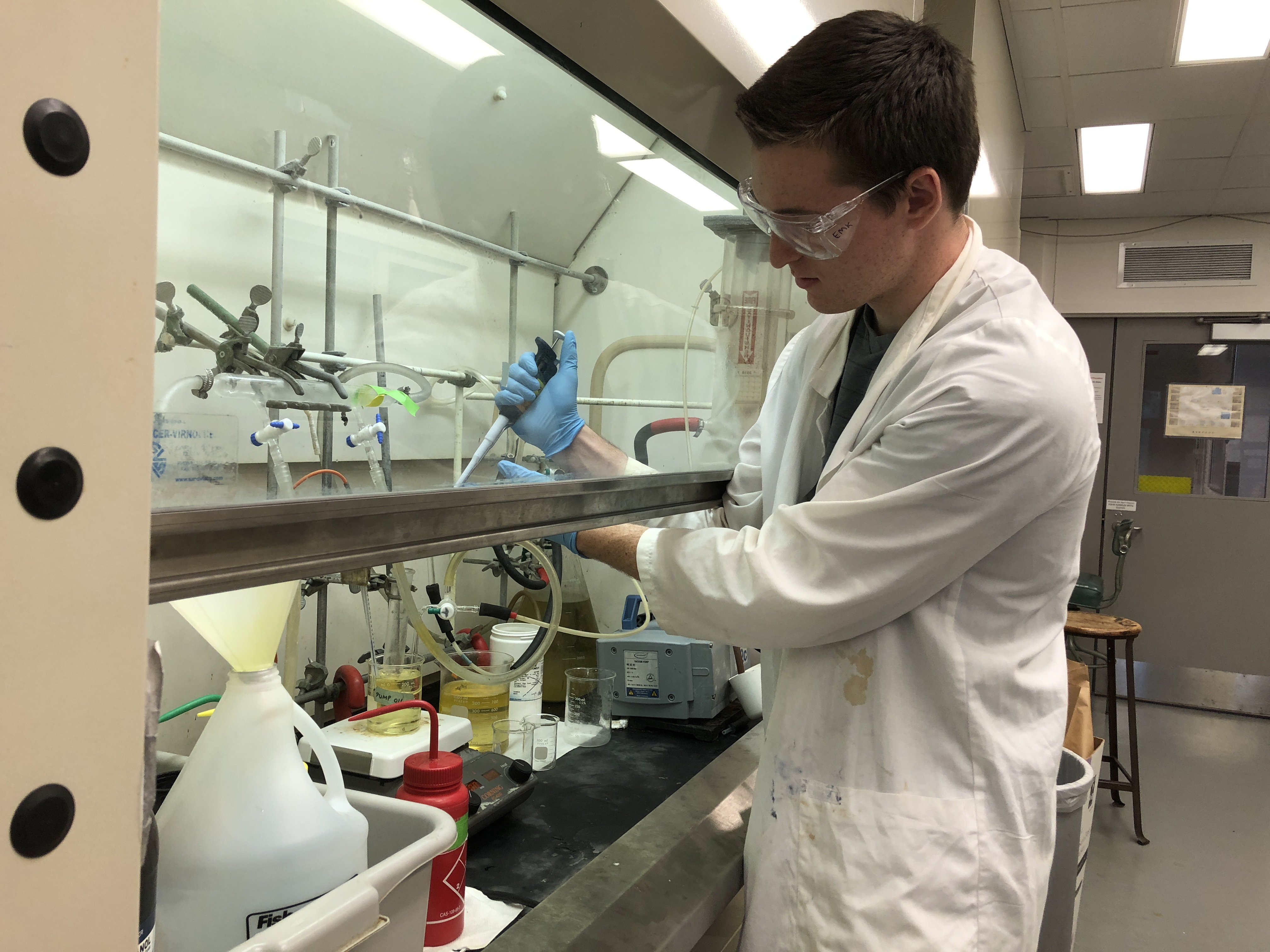NSF Grant Funds Hands-On Chemistry Learning
REU grant draws students from around the country for summer research.

The new millennium marked a significant milestone in the Department of Chemistry. In 2000, Distinguished Chemistry Professor Karin Ruhlandt, now Dean of the College of Arts and Sciences, was first awarded a grant from the National Science Foundation (NSF) to invite undergraduate students to Syracuse University to participate in summer research. Now, for the seventh time in the last 20 years, the department has received the Research Experiences for Undergraduates (REU) grant. Thanks to the renewal of this three-year, $365,000 grant, the program will continue through at least 2023.
“The National Science Foundation has been a wonderful supporter of the unique research opportunities we offer students each summer,” says Ruhlandt. “I am proud that Syracuse University is running one of the longest-standing chemistry REU programs in the country. Our students and faculty have done fantastic work and I am grateful to NSF, Professor Michael Sponsler and the entire team involved who make it possible for undergraduates to explore the field’s breadth, engage in hands-on research and experience the impact of chemistry in the world.”
The REU Site award brings students from around the country to Syracuse University to take part in research projects spanning the field of chemistry, so they can gain practical knowledge and skills through hands-on learning. There are currently around 70 active REU site grants in chemistry across the country.
Several key factors may contribute to the longevity of the award, says Michael Sponsler, professor in the Department of Chemistry who serves as the grant’s Principle Investigator (PI) for the second time. Those include: broad participation among faculty in the department; additional funding sources which more than double the number of participating students each year, thus increasing the impact of the funds provided by NSF; and balance between research, educational and social events for students. These factors, coupled with an international REU grant funding an exchange program with Austria’s Technical University of Graz, likely play a role in the renewal of A&S’ REU program.

The grant will support 10 students for 10 weeks (30 students in all) of chemistry research training. Students are selected for the highly competitive scholarship based on their research potential and research interests. Students chosen for the program at Syracuse have the opportunity to explore a diverse range of subject matter including: Inorganic chemistry, physical chemistry, biochemistry, solid-state science, chemical physics, surface chemistry, organic chemistry, organometallic chemistry, materials science, X-ray diffraction and others.
Though this year’s program has been canceled due to the COVID-19 pandemic, students not able to participate this summer will be admitted in 2021 as long as they still meet the eligibility requirements. In addition, NSF has allowed the chemistry department an additional year to fulfill the grant’s requirements.
Sponsler explains how this program plays a key role in shaping a student’s academic and professional future. “Research experience is highly valuable to students,” he says. “It is complementary to coursework; it shows students how hands-on science is done and it gives them a great model of what graduate school is like. It can help them immensely in making various decisions about their future – whether to go to graduate school, whether research is something they enjoy, and which area of chemistry or science they wish to pursue.”
Some of the student research topics from 2019 included: Influence of copper salts on metal organic framework formation; defining the catalytic mechanism of a transmembrane enzyme involved in hunger and metabolic regulation; and LiCoBr3 perovskite synthesis for applications in lithium ion batteries.
Alongside research, students participate in professional development training where they gain new perspectives in chemistry, navigate the different career and educational pathways in the chemical sciences and practice scientific communication skills. The grant supports students with or without prior research experience and welcomes a diverse group of participants in several respects, including gender, ethnicity and academic year.
As Sponsler notes, the REU award is a key component of A&S’ and the University’s efforts to encourage and support undergraduate research. It also introduces the University to a number of highly qualified undergraduate students from around the country.
The National Science Foundation funds research and education in most fields of science and engineering. It does this through grants, and cooperative agreements to more than 2,000 colleges, universities, K-12 school systems, businesses, informal science organizations and other research organizations throughout the United States.
Featured
Karin Ruhlandt Distinguished Professor Emerita
Michael Sponsler Professor
Media Contact
Dan Bernardi
